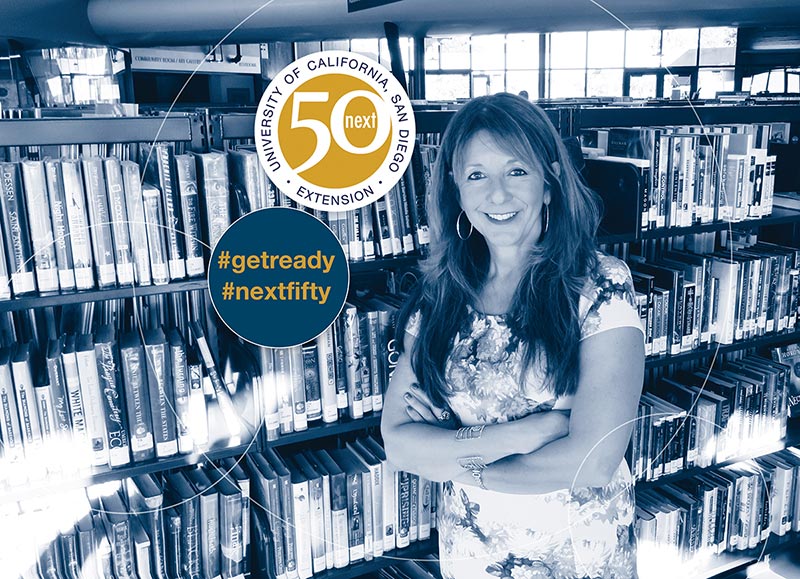15 March 2016
50 Voices of the Future: The new era of citizen journalism with Sylvia Mendoza

In honor of UC San Diego Extension's first 50 years, 50 Voices of the Future asks thought leaders about the trends, breakthroughs and social advances they foresee over the next 50 years.
Journalism, as a profession, looks far different now than it did a decade ago. Newspaper circulation has plummeted as readers turn to the web and social media for their news — and newspapers employ only a fraction of the reporters they once did. At the same time, a new breed of reporter has emerged, one who needs little more than a cell phone and a Facebook, Twitter or YouTube account to tell a story using words, pictures and video.
Author Sylvia Mendoza, who teaches writing and digital journalism at UC San Diego Extension, believes the fundamentals of journalism will never change, no matter what technology emerges in the future. The best journalists, she says, will always remain committed to telling interesting stories. They will also, she says, continue to serve as watchdogs with an unbending dedication to “seek the truth and write about it.”
(1) Why is the work you do important?
I believe in the power of the written word. I believe in the purpose of journalism. I believe in being the watchdog of society. I believe that knowledge is power. That education opens doors. I find inspiration in ordinary people who do extraordinary things. I believe in the code of ethics and a value system that drives good journalists to seek the truth and write about it. We challenge stereotypes, challenge authority, challenge perceptions. I challenge the stereotypes of what Latino is. Everything’s bubbling up now, it’s all news.
(2) What are the influential/exciting developments happening in your field now and why?
Everything is about the Internet, with everything at our fingertips. It’s just going to get easier for people to access material quicker. Journalism students now have to become “backpack journalists” or mobile journalists, and they have to be really versatile and flexible and write well and take photographs and videos and produce their own audio and be able to upload everything and make it magical and multifaceted. [They must] have enhancements to their stories, not just the written content, so that it’s really accessible to all. I know you can’t have a story for every age group and generational age group and everything, but that seems like where it’s going.
(3) What’s the next big thing?
The Internet brings a lot of power to our fingertips, but we have to be ready for it. So I think the next big thing is that we can have a lot of power as individuals wanting to go into any kind of media and promote ourselves, or our creative spirit, break any stereotypes and break all these barriers and do our own creative vision. However we want to put ourselves out there. But by the same token we’d better have that sense of social responsibility to go along with our vision, and have that sense of professionalism to go along with that vision. [We must] be educated enough to rise above the competition, because otherwise there’s no way you’re going to make it.
(4) How big of an impact will your field play in shaping the future of the San Diego region and beyond?
Citizen journalism will grow. You also see that there’s still something that’s drawing students to journalism and that they still feel there’s a need to tell stories, and nose around for news. If it’s in you, I think it’s in you.
(5) Hop into your time machine…what does the future look like for this field in 50 years? How can individuals/companies get prepared for what’s next?
The technology will come easier, that’s the easy part. What you will have to keep close to your heart and your mind all the way through is the core values of journalism, and train yourself first and foremost in the ethics of journalism and the purpose of journalism. If you’re going into that field, you have to know what the purpose of journalism is, and stay true to that, that code of ethics that started with the Society of Professional Journalists, and that withstands the whole test of time. I studied it in school 35 years ago, it’s relevant to me today as a working journalist and professor and writer, and I think it will be relevant 50 years from now.

Learn more about Sylvia Mendoza and the courses she teaches and explore other Writing programs and courses in Copyediting, Digital Media Content Creation and Technical Communication.